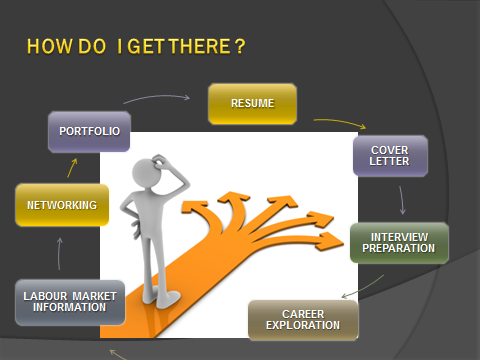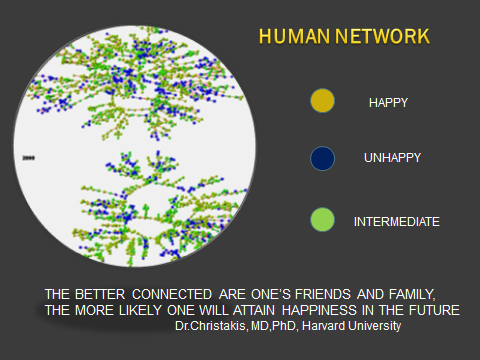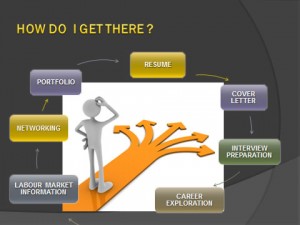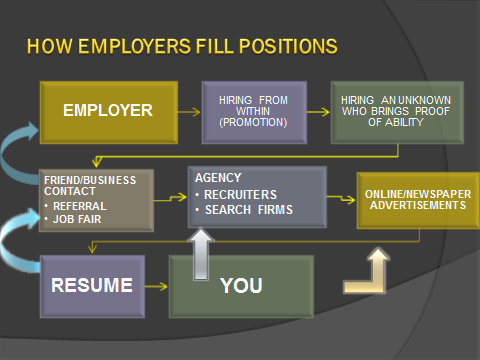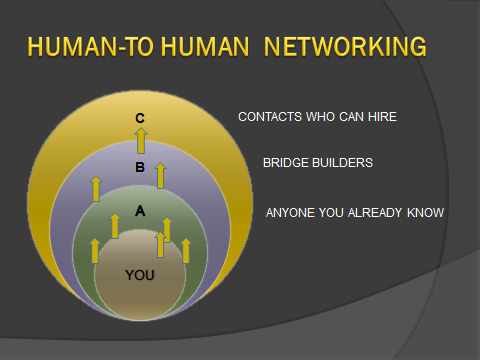SECRET #1. WRITE A RESUME YOURSELF – its your strength-builder!
Resume writing is not just your practice in an epistolary genre, even though it is an official document, presenting your work history to a prospective employer. Many people do not believe in their abilities to create such document themselves and ask other professionals to do it for them. ..and they lose. Why? By definition a resume is your marketing tool to get you to “the door” for an interview. Its less obvious, but not less important function is being your strength-builder! In fact, you mentally preparing yourself for future winning job interviews. Behind each concise statement of your resume has to be a short 2-3 minute story, convincing enough for your employer to decide that you are the best candidate for a current position.
SECRET #2. START FROM CREATING AN UNLIMITED DRAFT – to be able to match yourself to the best career opportunity!
Believe me – it is not a waste of time. In fact – sending out hundreds and hundreds resumes hoping for a miracle is a waste of time. Sit back and invest your time in self-assessment – create your life /career profile first. It can take 2,3,4, and more pages – it does not matter, but it supposed to be about every your life and career experience starting from the time, when your first said – I can do it…yes, that deep in your personal development history! It is what makes you who you are – your values, aptitudes, interests, preferences…and learned skills – small and big victories over life/work challenges, achievements in schools, work places, volunteering, hobbies. Include both soft/or people skills, and your hard/ or technical and academic skills. Write down every experience and learned skill in short statements, shedding more lights on your achievements, activities, which kept your energized and were easy and enjoyable to perform, describe the environment, in which you were the most productive etc. This step is important not only as a preparation for the final tailored version of your resume. It will help you to focus only on the market that fits you perfectly and you will not waste your time applying for jobs, which you would be unsatisfied with. Sadly, Statistics shows that only 20 % of people are currently satisfied with their jobs. Thus this stage of resume writing is so important.
SECRET #3. TAILOR YOUR RESUME FOR EACH NEW POSITION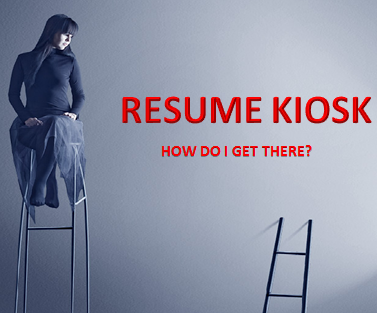
As previously mentioned, you better send 3 well tailored and adjusted to employer’s frame of mind resumes and get 1 response, than send hundreds without any reply. Finally we got to the point, where the marketing part of your resume will play a good deal for you. Now, our strategy is changing toward thinking from your prospective employer frame of mind. You have to do a research on each company you applying for, read carefully job posting, select so named Key Words, learn about your employer’s industry language and requirements. Now its time to squeeze out from your draft resume only relevant points and experience and edit it, using lots of action words, Buzz Words for the industry, emphasize accomplishments and specific results. Be as concise as possible! At this level, you can and even should use help of professional career counsellor… it is matching time! One of the most important criteria for your successful effective resume – to be a perfect match for the job description. It does not mean – word by word relevance – you still need to be creative and even pro-active to get to a competitive advantage point or as professional say, to create an adding value to your resume. For example, if you a facilitator – your ability to create a presentation using modern software will be an adding value for many employers.
SECRET #4. YOU HAVE ONLY 15 SECONDS TO CREATE A FIRST IMPRESSION
Now it is a turn of resume formatting. You can not overestimate the importance of the visual impression of your resume, because you have only 15 seconds to grasp an attention of the HR representative. You have to organize the most important part of your content on the first, sometimes the only page of your resume. There are several approaches, described in many sources, to do that:
1. apply the formats, emphasizing
- your experience – Chronological type;
- your skills – Functional type,
- or mix of both
2. keep formats clean, organized and consistent
- equal page margins (1-1.25 inches)
- common, easy-to-read fonts
- do not overuse paragraphs and bullets
- do not overuse text enhancements (bold, uppercase are preferable)
- if using graphics, not overpower the overall message of resume
3. always proofread your resume
SECRET #5. RESUME ALONG DOES NOT GUARANTEE YOU A DREAM JOB
You have to remember that the whole job search process is your full-time employment and consist of the series of actions, which you have to perform along with the writing and sending out your resume: networking, job leads search, portfolio building, self-management/ self-image support, research on labour market information and upgrading your skills to stay up-to-date! Always stay active with all possible business contacts – through your friends, or Linkedin connections, volunteering activities, participation in various meetings and job fairs…
Nonetheless, a resume has a usefulness to both: you and your prospective employer. To you, it is helping organize your thoughts about yourself, your training, your experiences, your uniqueness. To an employer, it is a possibility to remember you and a prove of hiring.
EXCELLENCE IS TO DO A COMMON THING
IN AN UNCOMMON WAY
Let your resume reflect that excellence!

